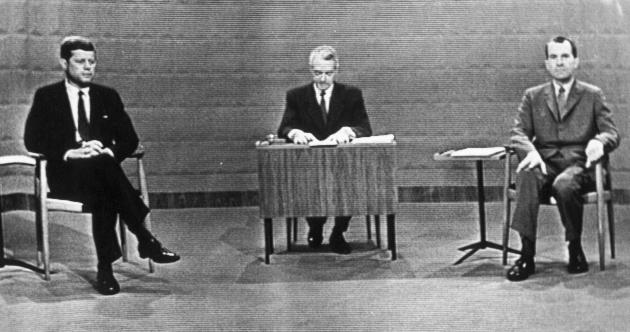
Heading into Monday’s presidential debate between Donald Trump and Hillary Clinton, I recommend a look back at the only other televised presidential debate to rival this one in importance and impact–I’m referring to 1960 and the Nixon-Kennedy debate. There is something to learn here that affects your viewing on Monday night.
First, like now, there was a powerful sense of old and new. These categories didn’t have as much to do with policies or positions, though Nixon and Kennedy did disagree on nearly every one. No, the basic and fascinating difference between old and new was generational and cultural. Kennedy was seen as of a decidedly younger generation, more sophisticated and cosmopolitan. Nixon, on the other hand was the symbol of old-fashionedness and tradition.
Second, their conduct and performance during the debate resulted in the extension of these perceptions. This view of them hardened after the broadcast. Note this: even with this debate outcome, the actual election margin was razor-thin and likely involved the breaking of rules, laws, and goodness-knows-what-else.
Third, various platforms for receiving the debate led to different understandings of what had happened during the debate. Those who listened on radio, for example, tended to give Nixon much higher marks than Kennedy. Television viewers did the opposite.
A fourth point belongs here, too. Kennedy was more apt to aim and fire various accusations at Nixon, who was constrained and less effective in responding. For example, Kennedy charged Nixon with being part of the reason that US missile technology had fallen woefully behind that of the Soviet Union. The facts told the opposite story–the US was far ahead of the Soviets, but Nixon couldn’t answer convincingly without revealing key national security information. Rather like Trump, Kennedy was comparatively more free-wheeling in his ability to level accusations at a slower-moving opponent.
If you watch the Trump-Clinton debate on Monday night, you’ll be seeing the most meaningful presidential debate since 1960.







